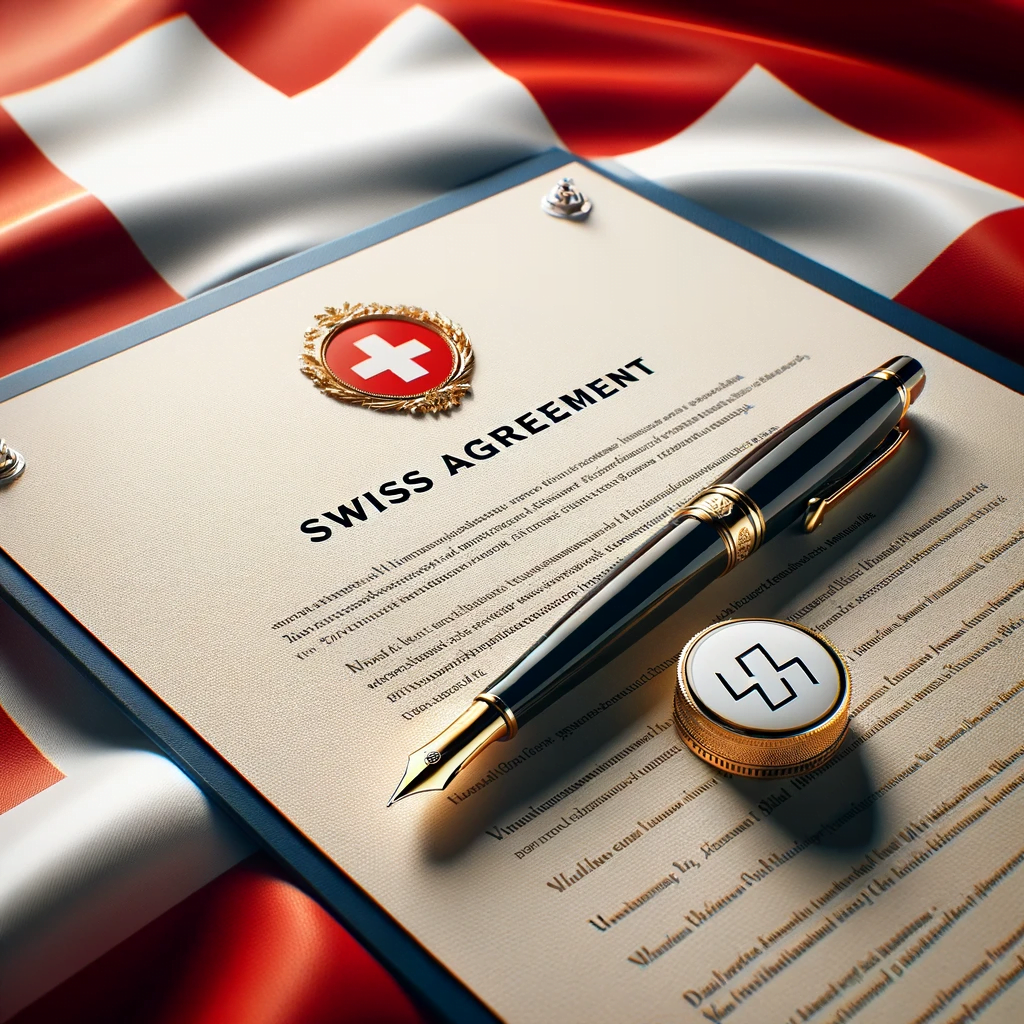
The realm of international commerce, the choice of governing law in agreements is pivotal. Amidst various options, Swiss law with UK laws stands out as a preferred choice for many global businesses, but we recommend you Swiss Law The Optimal Choice for Your International Contracts. Here’s why subjecting an agreement to Swiss law offers distinctive advantages over other jurisdictions like the US and UK. Do not hesitate to contact us for our help in drafting a swiss agreement at connect@swissfintechpro.com
Swiss law is globally recognized for its neutrality, making it an unbiased legal framework for parties from different jurisdictions. This perception of impartiality fosters trust among international commercial actors, ensuring that no party feels disadvantaged by the legal system governing their contract.
One of Swiss law’s practical advantages is its accessibility in several languages, including the official languages (German, French, and Italian) and in English. This multilingual availability is particularly beneficial in cross-border transactions, allowing parties to understand and interpret legal documents more efficiently.
At its core, Swiss contract law is built on the principle of contractual freedom. This fundamental right, deeply ingrained in Swiss constitutional law, empowers parties to determine the content of their contractual relationships within legal boundaries. Article 19(1) of the Swiss Code of Obligations encapsulates this ethos, offering a wide margin for contract design, especially in international commercial contracts where mandatory social protection provisions are less likely to interfere.
Swiss law upholds the principle of pacta sunt servanda, the belief that agreements must be kept. This principle is not just a legal formality; it is a cornerstone of Switzerland’s legal system, ensuring that clearly agreed contractual clauses are strictly binding. This offers a high degree of certainty and reliability to contracting parties.
Swiss law balances the freedom of contract with the principle of fairness. The legal system is imbued with the idea that contracts should not only be legally compliant but also fair and equitable. This is reflected in various legal provisions, including the requirement for parties to act in good faith, both in the formation and execution of contracts.
Swiss law earns its renown through its flexibility and minimalistic approach to mandatory provisions. This lean legal framework enables the swift adaptation to new economic and commercial developments. Furthermore, the efficiency of civil law proceedings in Switzerland allows for faster resolution of disputes, enabling parties to move forward without prolonged legal battles.
Compared to the often extensive and costly discovery phases in Common Law jurisdictions, Swiss civil law proceedings tend to be more streamlined. This can lead to quicker closures in legal disputes, saving time and resources for all parties involved.
The Swiss Code of Obligations and the Swiss Civil Code borrow elements from both French and German legal systems, making Swiss law an ideal common ground for parties from different civil law traditions. This compatibility is a significant advantage in fostering cross-cultural commercial relationships.
A significant advantage of Swiss law is its reliance on a commercial code that promotes conciseness and clarity in contractual agreements. US lawyers draft voluminous and often convoluted contracts common under US common law. Agreements under Swiss law tend to be more straightforward. A document of merely 10 to 20 pages under Swiss law can offer as much protection as a 100-page contract in the US. This succinctness does not only aid in better understanding among parties but also in the practical execution and enforcement of contracts.
An illustrative example of this difference emerges from a French multinational’s experience in purchasing a UK company. The agreement’s complexity made it impossible for the board to find the purchase price within the document. They had to consult their UK lawyer. The lawyer revealed that the price was distributed across multiple clauses. Under Swiss law, one would clearly and concisely state fundamental elements of an agreement, such as the purchase price, avoiding confusion and ensuring transparency.
Moreover, another crucial advantage of opting for Swiss law is the relative cost-efficiency of litigation. Legal proceedings in Switzerland generally cost less than those in the United States, even for significant cases. This cost efficiency extends beyond the proceedings themselves. It encompass broader aspects of litigation, including pre-trial and discovery phases, which Swiss law notably streamlines.
Switzerland’s popularity as a seat for arbitration further contributes to the preference for Swiss law. The substantive law of the arbitration seat often influences the choice of governing law in contracts, and Switzerland’s established reputation in this domain adds to its appeal.
Swiss courts rendered fair and reasonable awards. The judicial system in Switzerland aims for equity, ensuring that the outcomes of legal disputes are just and balanced. This principle extends to the calculation of damages, legal fees, and other aspects of legal awards. Switzerland is an attractive jurisdiction for parties seeking a fair resolution of disputes without the risk of disproportionately high awards or punitive damages commonly feared in the US legal system.
Opting for Swiss law in international agreements offers multiple advantages. From the drafting stage of contracts, characterized by clarity and brevity, to the efficiency and fairness of the legal proceedings. These benefits, combined with Switzerland’s reputation for neutrality and its arbitration-friendly environment, make Swiss law a preferred choice for international commercial actors seeking a reliable, equitable, and cost-effective legal framework for their agreements. Do not hesitate to contact us at connect@swissfintechpro.com for more information in relation to this matter.